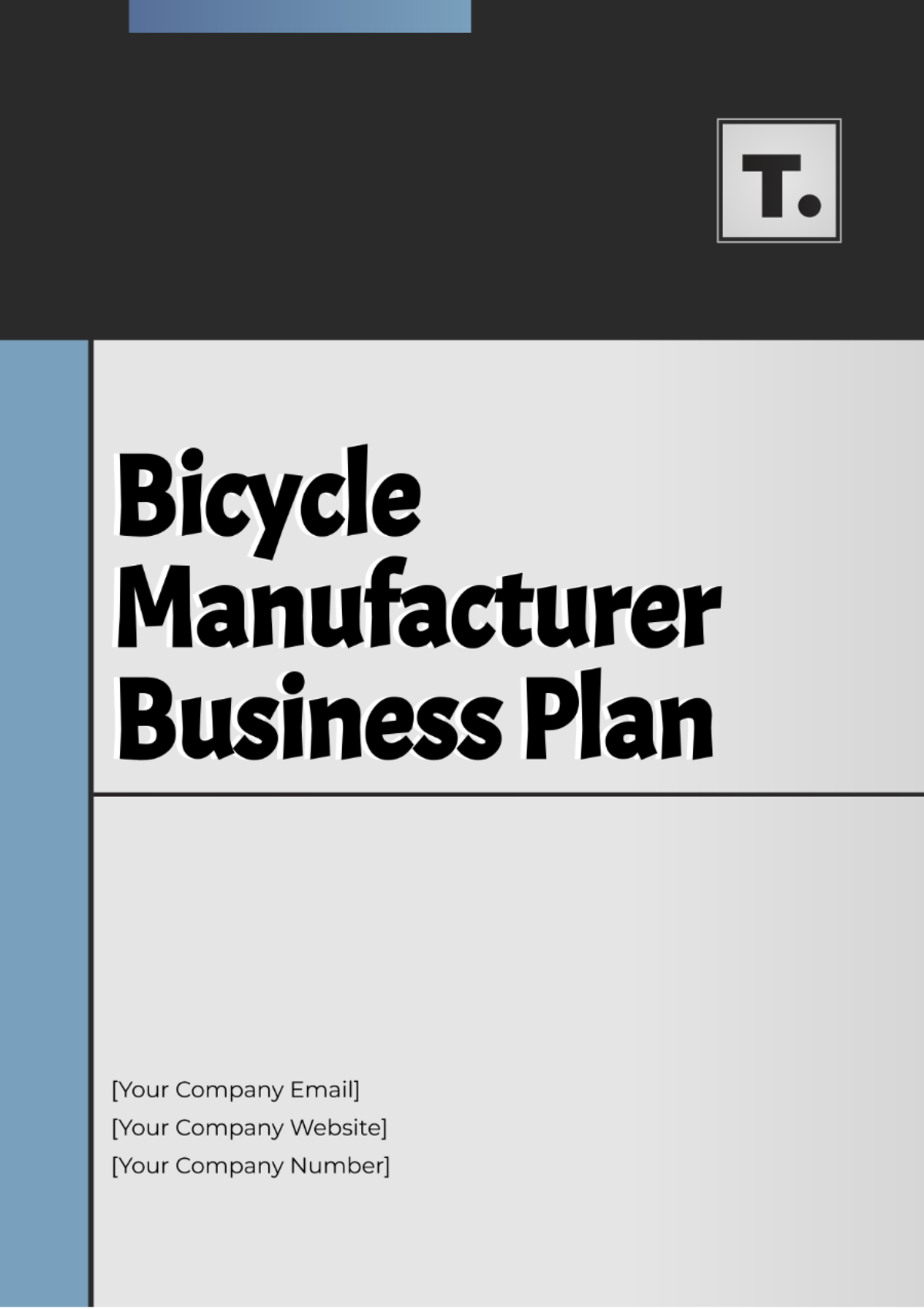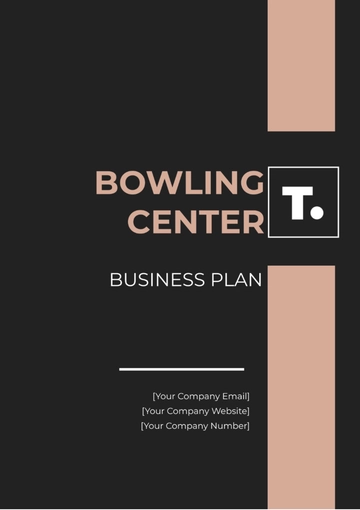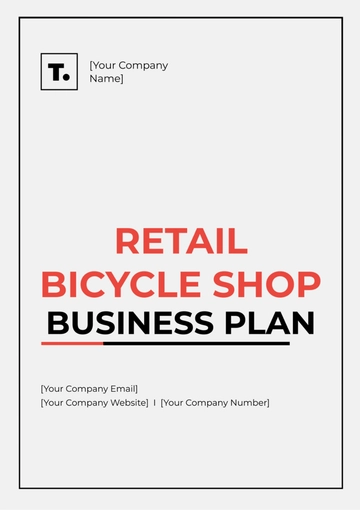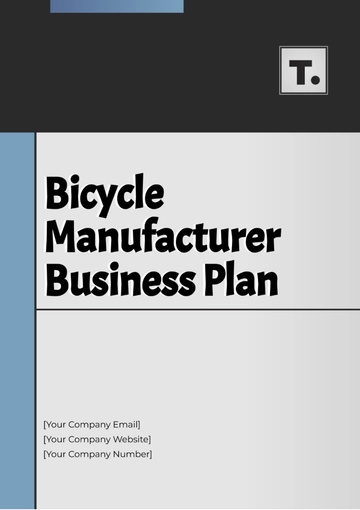Free Bicycle Manufacturer Business Plan

I. Executive Summary
Company Overview
[Your Company Name] is poised to revolutionize the bicycle industry by introducing cutting-edge technology and sustainable manufacturing practices. Our mission is to provide high-quality, customizable bicycles while prioritizing environmental sustainability and customer satisfaction.
Market Opportunity
The global bicycle market is experiencing significant growth, driven by increasing health consciousness, urbanization, and environmental concerns. [Your Company Name] aims to capitalize on this trend by offering innovative products tailored to meet the diverse needs of cyclists worldwide.
Unique Selling Proposition (USP)
Our bicycles stand out in the market due to their lightweight carbon fiber frames, integrated smart technology, and customizable design options. By incorporating advanced materials and engineering techniques, we deliver superior performance, durability, and customization options unmatched by competitors.
Financial Highlights
Year | Revenue | Expenses | Net Profit |
|---|---|---|---|
2050 | $5,000,000 | $4,000,000 | $1,000,000 |
2051 | $7,000,000 | $5,000,000 | $2,000,000 |
2052 | $9,000,000 | $6,000,000 | $3,000,000 |
II. Business Description
Mission Statement
[Your Company Name] is dedicated to designing and manufacturing innovative bicycles that inspire people to live active and sustainable lifestyles.
Vision Statement
To become a global leader in the bicycle industry, known for our commitment to quality, innovation, and environmental stewardship.
Goals and Objectives
Launch 10 new bicycle models by 2053.
Expand distribution channels to 20 countries within the next five years.
Achieve a 15% market share in the premium bicycle segment by 2055.
III. Market Analysis
Industry Overview
The bicycle industry is experiencing steady growth, driven by factors such as increasing interest in outdoor activities, eco-friendly transportation options, and advancements in bicycle technology.
Target Market
Our primary target market includes urban commuters, cycling enthusiasts, and professional athletes, comprising approximately 30% of total cyclists globally.
Competitive Analysis
Competitor | Strengths | Weaknesses |
|---|---|---|
Trek Bikes | Established brand reputation | Limited customization options |
Specialized | Extensive product range | Higher price points |
Giant Bicycles | Global distribution network | Lack of focus on innovation |
IV. Marketing Plan
Product Strategy
[Your Company Name] will differentiate itself through cutting-edge technology, customizable design options, and a focus on sustainability.
Pricing Strategy
Our pricing strategy will be positioned as premium, offering customers high-quality products with advanced features at competitive prices.
Promotional Strategy
We will utilize a mix of digital marketing, social media campaigns, and partnerships with professional athletes and influencers to raise brand awareness and drive sales.
V. Operations Plan
Production Process
Our state-of-the-art manufacturing facility will employ lean production methods to ensure efficiency and minimize waste.
Supply Chain Management
We will establish strategic partnerships with suppliers to source high-quality materials while maintaining cost-effectiveness and sustainability.
VI. Management and Organization
Leadership Team
[Your Name], CEO
[Co-Founder Name], COO
[Financial Officer Name], CFO
Organizational Structure
Our company will adopt a flat organizational structure, fostering collaboration and agility across departments.
VII. Financial Plan
Financial Projections
Please consult the table labeled "Financial Projections" that has been included previously in this document.
Funding Requirements
[Your Company Name] seeks $10,000,000 in funding to support initial product development, marketing efforts, and operational expenses.
SWOT Analysis
Strengths | Weaknesses |
|---|---|
Innovative technology | Initial lack of brand recognition |
Customizable design | Higher production costs |
Sustainable practices | Limited distribution network |
Opportunities | Threats |
|---|---|
Growing market demand | Intense competition |
Expansion into new markets | Economic downturns |
Strategic partnerships | Regulatory challenges |
VIII. Risk Analysis and Mitigation Strategies
Risk Identification
Market saturation
Supply chain disruptions
Economic instability
Mitigation Strategies
Diversification of product offerings
Development of contingency plans with suppliers
Maintaining a robust financial reserve
- 100% Customizable, free editor
- Access 1 Million+ Templates, photo’s & graphics
- Download or share as a template
- Click and replace photos, graphics, text, backgrounds
- Resize, crop, AI write & more
- Access advanced editor
Introducing the Bicycle Manufacturer Business Plan Template, meticulously crafted by Template.net for comprehensive planning and management in the bicycle manufacturing industry. This customizable document empowers entrepreneurs and bicycle manufacturers to outline their business goals, production strategies, and financial projections. With editable features and a user-friendly layout, it facilitates tailored business planning to meet specific objectives and industry standards. Streamline your bicycle manufacturing startup process and gain valuable insights into marketing, supply chain management, and financial forecasting. Elevate your bicycle manufacturing business with this versatile template, your essential tool for achieving success in the dynamic and competitive market.
You may also like
- One Page Business Plan
- Coffee Shop Business Plan
- Restaurant Business Plan
- Food Business Plan
- Real Estate Business Plan
- Executive Summary Business Plan
- Cover Page Business Plan
- Nonprofit Business Plan
- Daycare Business Plan
- Construction Business Plan
- Startup Business Plan
- Medical Business Plan
- Bakery Business Plan
- Service Plan
- Hotel Business Plan
- Catering Business Plan
- School Business Plan
- Healthcare Business Plan
- Transportation Plan
- Sports Plan
- Car Wash Business Plan
- Salon Business Plan
- Clothing Business Plan
- Farming Business Plan
- Boutique Plan



















